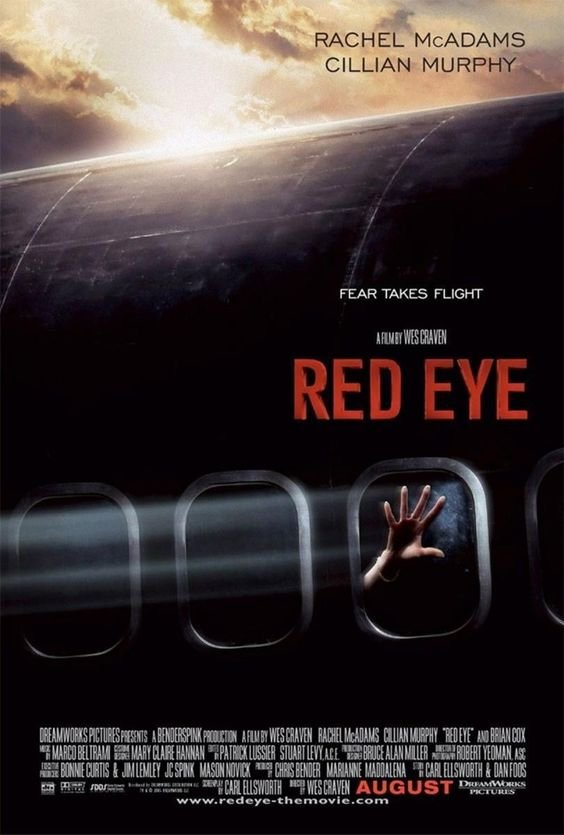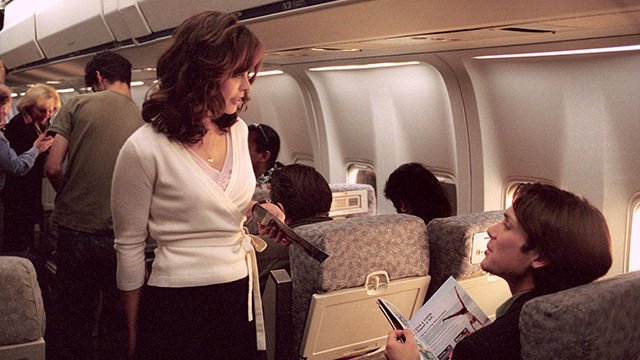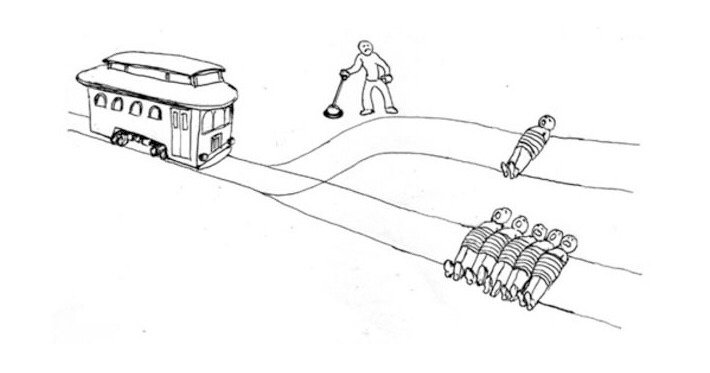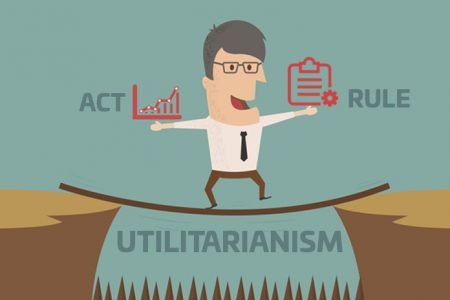Hello hive Cinephiles!
Today I join the contest that CineTv presents us, bringing you the analysis of one of the best flying movies I've seen. The analysis brings with it an interesting ethical theory that shows us the fine line between causing evil and letting it happen. I hope you like it very much.
¡Hola cinéfilos de Hive!
Hoy me uno a el concurso que CineTv nos presenta, trayéndoles el análisis de una de las mejores películas de vuelo que he visto. El analisis trae consigo una interesante teoría ética que nos muestra la delgada linea que existe entre causar un mal y dejar que ocurra. Espero que les guste mucho.

Jack seems very charming, until the moment the plane takes off, when he tells her that he has people outside her father's house and that if she doesn't agree to do what he asks, he will kill him.
La película trata de una chica llamada Elisa, que es gerente de un hotel y debido a una emergencia (la muerte de su abuela) tiene que coger un vuelo. Mientras encuentra su asiento conoce a su compañero de vuelo, Jack, un chico simpático y guapo.
Jack parece muy encantador, hasta el momento en que el avión despega, cuando le dice que tiene gente fuera de la casa de su padre y que si no accede a hacer lo que le pide, lo matará.

Ella no puede pedir ayuda, ni hacer nada para ayudar a sus padres, porque Jack con una simple llamada podría dar la orden del asesinato y ella no puede quitarle el móvil (para que no llame), porque si la gente que trabaja para él no conoce su paradero, también matarán a su padre. Lo que Jack le pide es una "simple llamada"; que llame al hotel donde ella es la gerente y le diga que cambie de habitación a un político que se alojará allí, para poder matarlo.

- The first is not to make the call and have her father killed and,
- The second is to make the call, get all 4 people killed, but save her father. What would you do?
This is where the streetcar dilemma comes in, which puts us in a similar situation. This dilemma tells us that there is a train going at full speed without brakes that is headed for 5 people, unfortunately you cannot warn them, let alone stop the train, but, there is a lever, that if you pull it, the train will swerve and run over only one person; that is, you pull the lever and run over one person, but you save 5 lives.
Elisa tiene dos opciones:
- La primera es no hacer la llamada y que maten a su padre,
- La segunda es hacer la llamada, hacer que maten a las 4 personas, pero salvar a su padre. ¿Qué haría usted?
Aquí es donde entra el dilema del tranvía, que nos pone en una situación similar. Este dilema nos dice que hay un tren que va a toda velocidad y sin frenos que se dirige hacia 5 personas, desgraciadamente no puedes avisarles, y mucho menos parar el tren, pero, hay una palanca, que si tiras de ella, el tren se desviará y atropellará a una sola persona; es decir, tiras de la palanca y atropellas a una persona, pero salvas 5 vidas.

Regarding this, there is an ethical theory that tells us that for utilitarianism, the most ethical and best viewed option is the one that produces the greatest benefit for the greatest number of people, that is, it would not be right to save your father and here the question is, would you be able to?
El 85% de la gente dice que tiraría de la palanca, pero ¿qué pasaría si las mismas 5 personas estuvieran en la vía pero tu padre estuviera al otro lado? ¿Sacrificarías la vida de tu padre para salvar a 5 personas o simplemente no tirarías de la palanca? La verdad es que no tiraría de ella.
Respecto a esto, hay una teoría ética que nos dice que para el utilitarismo, la opción más ética y mejor vista es la que produce el mayor beneficio para el mayor número de personas, es decir, no estaría bien salvar a tu padre y aquí la pregunta es, ¿serías capaz?

Hasta aquí el análisis de esta excelente película. Espero les haya gustado mucho y muchas gracias por leer. Espero sus respuestas en los comentarios. ⬇️⬇️